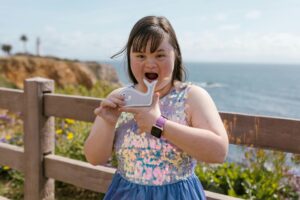By Steven Ross Johnson, US News
Research released Wednesday by the Centers for Disease Control and Prevention shows a larger share of children with disabilities between 5 and 17 years of age experienced stressful life events such as neighborhood violence or parental incarceration compared to children without a disability.
The analysis of 2019 survey data offers valuable insight by quantitatively identifying disability status as a risk factor for experiencing an adverse event in childhood, which can have severe repercussions later in life.
“Studies like this really help set the agenda for what we need to be looking at to be able to better help our children with disabilities,” says Dr. Dennis Kuo, immediate past chair of the American Academy of Pediatrics’ Council for Children with Disabilities.
Share This Post!
What Is Intergenerational Trauma?
By Ivy Kwong, LMFT Humans have survived for thousands of years by evolving the ability to adapt. If you live with chronic stress or have lived through a traumatic event, certain [...]
Is It ADHD or Trauma
By Caroline Miller When kids have behavior and attention issues in school, the first explanation that comes to mind is often ADHD. But exposure to trauma can also cause symptoms that [...]
Student Trauma Is Real. But Connection Can Heal.
By Gary G. Abud, Jr. As humans, we are hard-wired for connection with each other. When we face challenging life situations, we often seek out and lean on others. Relationships are [...]
Children, Teens Are in a ‘Mental Health State of Emergency,’ Child Health-Care Groups Warn
By Alyson Klein There’s been a quieter, parallel pandemic happening alongside COVID-19: a spike in significant mental health problems among young people, spurred by isolation, uncertainty, fear, and grief. Mental health [...]
Making the Connection: Trauma and Substance Abuse
Data from the most recent National Survey of Adolescents and other studies indicate that one in four children and adolescents in the United States experiences at least one potentially traumatic event before [...]
Helping immigrant children heal
Twenty years ago, Hami Torres fled Mexico at age 13, her 11-year-old brother in tow. Terrified, they trekked for hours with a group of older strangers through desert scrub that slashed Hami's [...]








